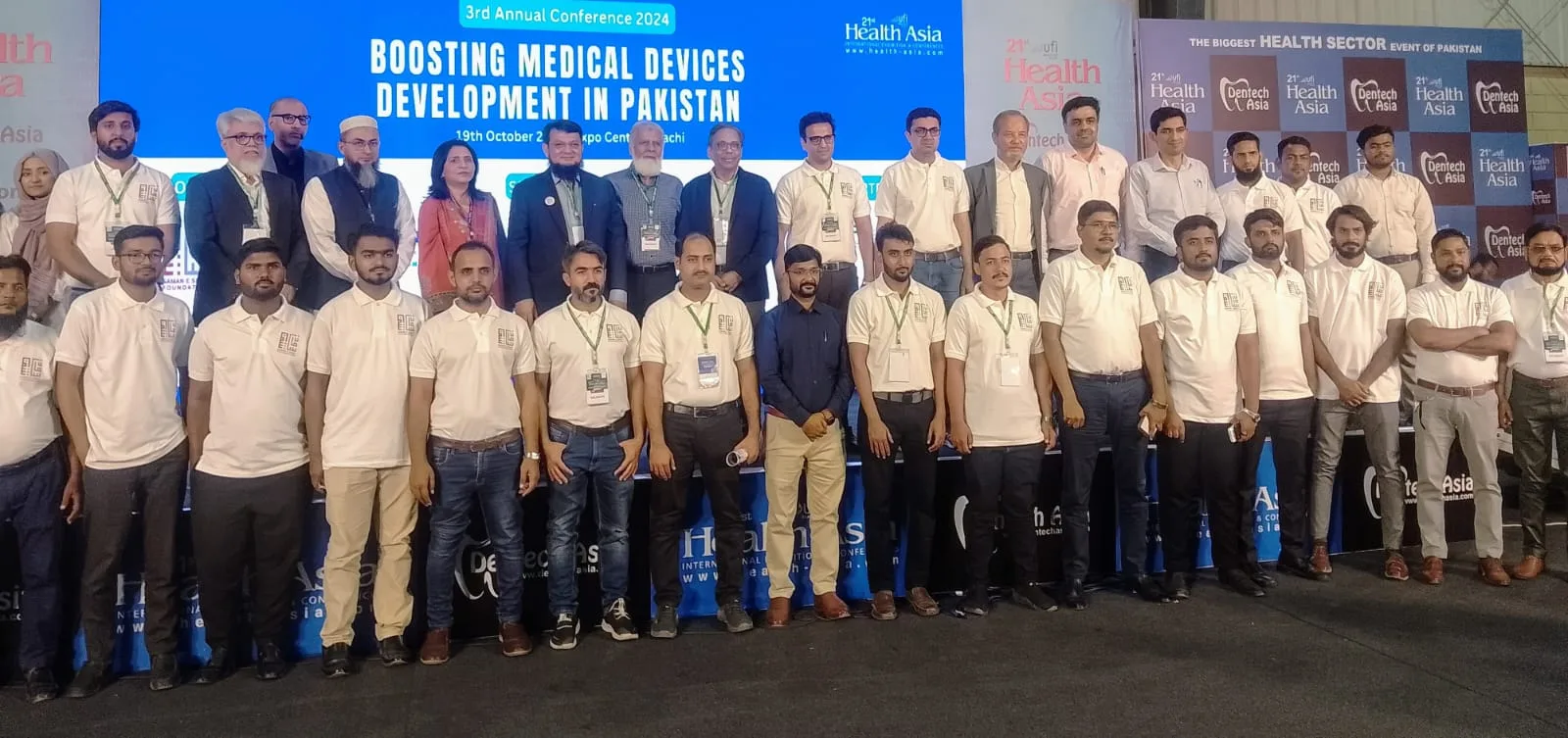
CEO Trade Development Authority of Pakistan (TDAP) Zubair Motiwala said that Pakistani companies have made notable progress in the development and manufacturing of medical devices and equipment, which could not only reduce $2 billion of the import bill within the next five years but also earn foreign exchange for the country in the next phase by exporting technological items to different countries of the world.
Speaking as the chief guest at the 3rd annual conference “Boosting Medical Devices,” hosted by Health Asia International Exhibition and Conferences on Saturday at Expo Center, Karachi, he said that Pakistani companies had established export networks worldwide for surgical items and pharmaceutical products, and the exports of medical devices and equipment could also be enhanced to different countries with the collaborative efforts of all stakeholders.
He mentioned that medical device manufacturing is a sophisticated specialty, hence, exporting these items requires a greater level of testing and standardization before marketing these brands in the international market. TDAP is exploring all potential sectors to increase the country’s exports, and it must support the health sector in working on its localization to substitute its imports first and boost its exports gradually, CEO TDAP added.
Chairman Samane Shifa Foundation Dr Syed Shahid Noor said that Pakistan is capable of producing nuclear technology and military aircraft, and it has now developed medical devices for local hospitals to ensure the affordable health treatment of the masses. More than 10 devices, including ventilators and cardiac stent, have been made at a local level, and more than 20 devices are in the process of the development.
The global volume of medical devices and equipment is up to Rs. 1 trillion and even if we achieve only 1% of the worldwide market, we can significantly support our national economy, he mentioned
He said the government should incentivize this sector under a comprehensive policy for a national cause to reduce the country’s current account deficit. In this regard, an investor-friendly policy should be introduced with the recommendations of all stakeholders. Besides, he further said that duties on raw materials should be reduced or waived, and government and private sector hospitals should be encouraged to procure DRAP-approved made-in-Pakistan products.
Director Drug Regulatory Authority of Pakistan (DRP) Dr Saif-ur-Rahman Khattak said that the manufacturing of medical devices falls in the pharmaceutical sector as well as in the Ministry of Science and Technology hence, there are complications in the process of approval at the end of the regulatory, which should be fixed with the recommendations of the stakeholders.
He said that DRAP is working to facilitate device manufacturers in Pakistan, however, there are issues of capacity at its end that need to be addressed in collaboration with the industry’s stakeholders.
Chairman Healthcare Devices Association of Pakistan (HDAP) Syed Omar Ahmed argues that medical device importers are potential manufacturers due to their established sales distribution network and knowledge of the sector. However, the government should develop policies that could attract foreign and local investment in this sector through a level playing field and investor-friendly policies.
He mentioned that 98% of medical devices are imported into Pakistan from different countries, but the margins in this business are based on volumes, therefore, the government should not only rationalize the tax mechanism in this sector. A strong political will is needed to promote the emerging industry of medical devices through policies, intervention, and incentives to work out the place of import substitution and the commencement of the export of medical equipment.
The 21st edition of Health Asia took place October 17 to 19 at the Expo Center in Karachi. More than 20 Conferences and Seminars were organized alongside the three-day exhibition. More than 500 exhibitors, including foreign delegates from different countries, participated in Health Asia, and nearly 60,000 visitors attended the three-day event.
Bill Clinton denies wrongdoing as grilling over Epstein ties continues Former US President Bill Clinton…
The European Union issued a statement emphasizing the need for restraint and diplomacy amid escalating…
Senior reporter Kirk Jones expressed deep concern over John Davidson's experience at this year’s BAFTA…
Prime Minister Shehbaz Sharif is scheduled to visit Russia on March 3-5, according to reports…
ISLAMABAD: The Ministry of Finance has presented its Economic Outlook for the year ending March…
A Bolivian military cargo plane carrying newly printed currency crashed near La Paz, Bolivia's capital…
This website uses cookies.